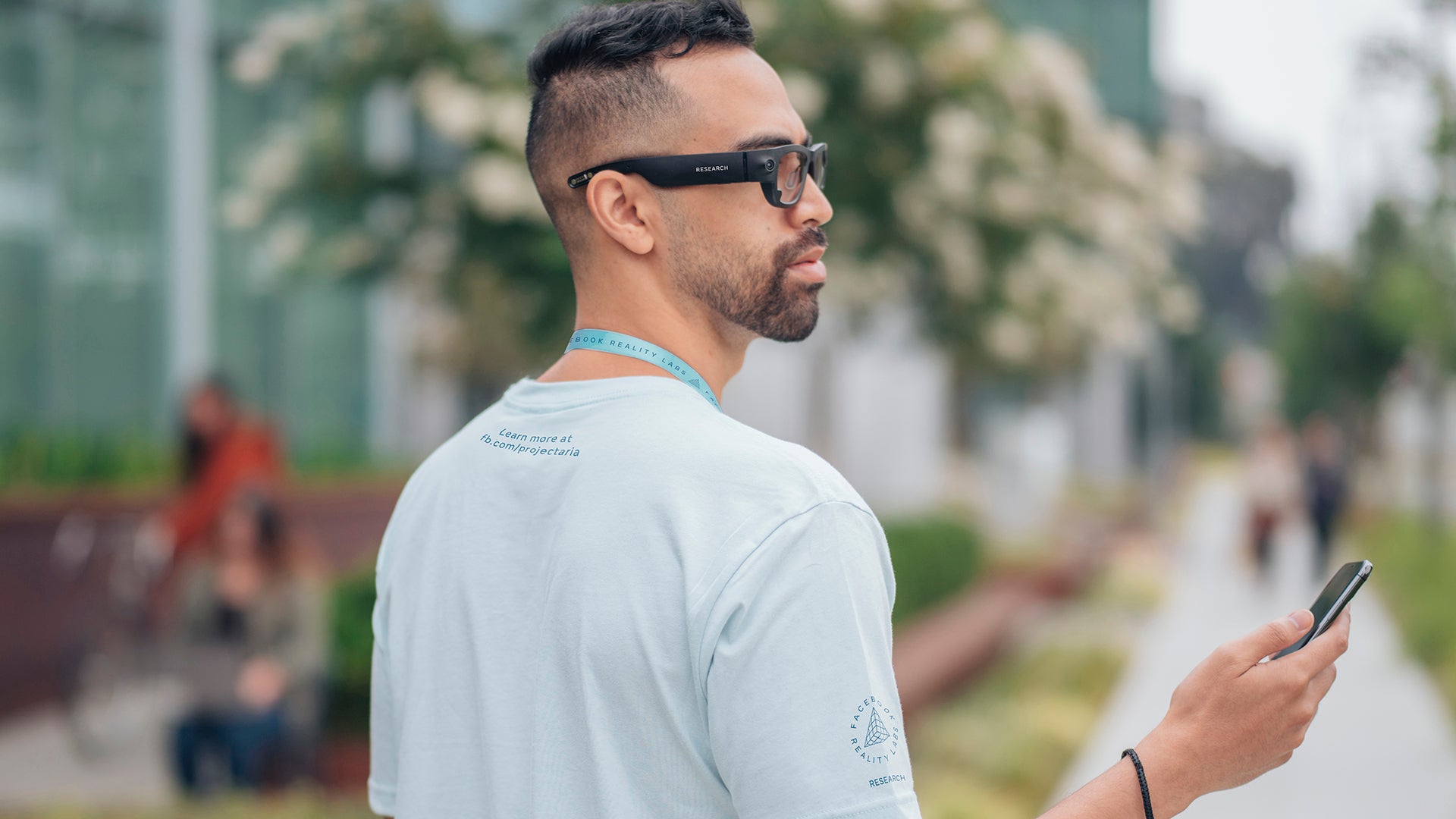The Independent's journalism is supported by our readers. When you purchase through links on our site, we may earn commission.
Facebook’s smart glasses may have facial recognition built-in – but employees are worried about ‘stalkers’
‘The future product would be fine without it but there were some nice use cases,’ Facebook’s head of AR and VR tweeted

Facebook’s upcoming smart glasses could have facial recognition built-in, a company executive has said.
During a company meeting Andrew Bosworth, the social media giant’s vice president of augmented and virtual reality, said that Facebook was assessing whether it could legally offer facial recognition on the devices.
An employee asked Mr Bosworth whether people would be able to “mark their faces as unsearchable”, due to fears of “real-world harm,” such as “stalkers.”
In response, Mr Bosworth said that “face recognition... might be the thorniest issue, where the benefits are so clear, and the risks are so clear, and we don’t know where to balance those things,” as reported by Buzzfeed News.
Following Buzzfeed’s publication of the story, Bosworth tweeted that the company had been “open about our efforts to build AR glasses and are still in the early stages. Face recognition is a hugely controversial topic and for good reason and I was speaking about was how we are going to have to have a very public discussion about the pros and cons.
“In our meeting today I specifically said the future product would be fine without it but there were some nice use cases if it could be done in a way the public and regulators were comfortable with,” he continued.
Potential versions of Facebook’s smart glasses, which are set to come out this year and may have voice commands using “Hey Facebook”, have been talked about before.
In 2020, during its Oculus Connect life stream, the company revealed Project Aria, which will “add a 3D layer of useful, contextually-relevant and meaningful information on top of the physical world”.
In a blog post at the time, Facebook said: “Imagine calling a friend and chatting with their lifelike avatar across the table. Imagine a digital assistant smart enough to detect road hazards, offer up stats during a business meeting, or even help you hear better in a noisy environment”.
The issue of increased facial recognition is tied hand-in-hand to greater surveillance. Many have warned about the numerous instances where people have been wrongly identified, as well as arrests and jail time that have come from flaws in the system that disproportionately affects minority communities.
Join our commenting forum
Join thought-provoking conversations, follow other Independent readers and see their replies
Comments
Bookmark popover
Removed from bookmarks